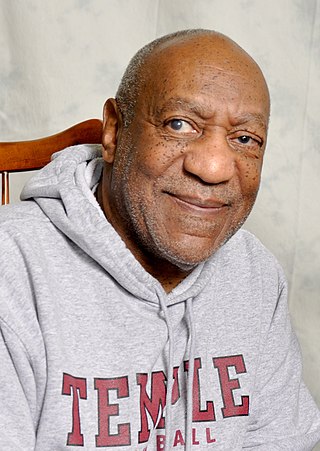
William Henry Cosby Jr. is an American former comedian, actor, spokesman, and media personality. Cosby gained a reputation as "America's Dad" for his portrayal of Cliff Huxtable on The Cosby Show (1984–1992). He has received numerous awards and honorary degrees throughout his career, many of which were revoked following sexual assault allegations made against him in 2014.

8:30 is the second live album from the jazz fusion group Weather Report, issued in 1979 by ARC/Columbia Records. The album rose to No. 3 on the Billboard Jazz Albums chart and No. 47 on the Billboard 200 chart. 8:30 also won a Grammy Award for Best Jazz Fusion Performance.

Return to Forever was an American jazz fusion band that was founded by pianist Chick Corea in 1972. The band has had many members, with the only consistent bandmate of Corea's being bassist Stanley Clarke. Along with Weather Report, The Headhunters, and Mahavishnu Orchestra, Return to Forever is often cited as one of the core groups of the jazz-fusion movement of the 1970s. Several musicians, including Clarke, Flora Purim, Airto Moreira and Al Di Meola, came to prominence through their performances on Return to Forever albums.

Fat Albert and the Cosby Kids is an American animated television series created, produced, and hosted by comedian Bill Cosby, who also lent his voice to a number of characters, including Fat Albert and himself. Filmation was the production company for the series. The show premiered in 1972 and ran until 1985. The show, based on Cosby's remembrances of his childhood gang, focused on Fat Albert, and his friends.
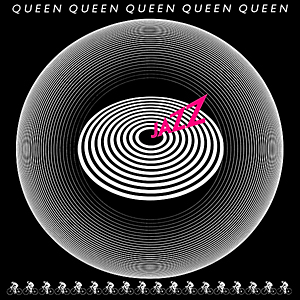
Jazz is the seventh studio album by the British rock band Queen. It was released on 10 November 1978 by EMI Records in the United Kingdom and by Elektra Records in the United States. Produced by Roy Thomas Baker, the album artwork was suggested by Roger Taylor, who previously saw a similar design painted on the Berlin Wall. The album's varying musical styles were alternately praised and criticised. It reached number two in the UK Albums Chart and number six on the US Billboard Top LPs & Tape chart.
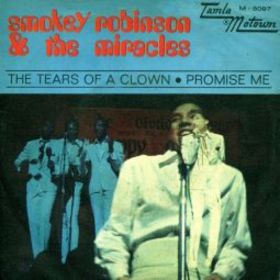
"The Tears of a Clown" is a song written by Hank Cosby, Smokey Robinson, and Stevie Wonder and originally recorded by Smokey Robinson & the Miracles for the Tamla Records label subsidiary of Motown, first appearing on the 1967 album Make It Happen. The track was re-released in the United Kingdom as a single in July 1970, and it became a number-one hit on the UK Singles Chart for the week ending September 12, 1970. Subsequently, Motown released a partially re-recorded and completely remixed version as a single in the United States as well, where it quickly became a number-one hit on both the Billboard Hot 100 and R&B Singles charts.
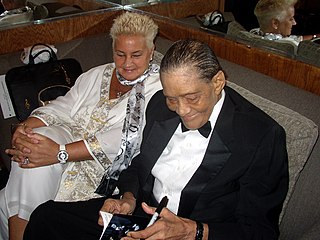
James Victor Scott, known professionally as Little Jimmy Scott or Jimmy Scott, was an American jazz vocalist known for his high natural contralto voice and his sensitivity on ballads and love songs.
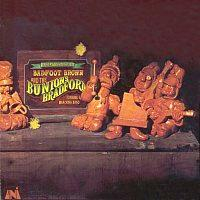
Badfoot Brown & the Bunions Bradford Funeral & Marching Band (1971) is an album by Bill Cosby. It is an instrumental jazz-funk album in which Cosby plays electric piano. It is his third musical album release. The first track is a tribute to Martin Luther King Jr. It was issued on compact disc in 2008 by Dusty Groove.
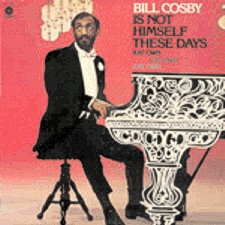
Bill Cosby Is Not Himself These Days - Rat Own, Rat Own, Rat Own (1976) is a musical comedy album by Bill Cosby. He parodies various rhythm and blues artists including James Brown and Barry White. The songs were written with producer and keyboardist Stu Gardner. This is also his first album on Capitol Records, his fourth musical album release overall.
Paul Nelson Humphrey was an American jazz and R&B drummer.
Bobby Jones was an American jazz saxophonist.
Hermenengildo "Gildo" Mahones was an American jazz pianist.

Mirror Image is the seventh album by the band Blood, Sweat & Tears, released by Columbia Records in July 1974.
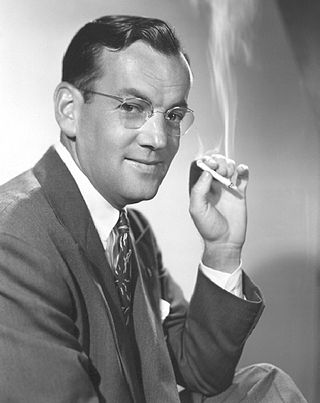
Between 1938 and 1944, Glenn Miller and His Orchestra released 266 singles on the monaural ten-inch shellac 78 rpm format. Their studio output comprised a variety of musical styles inside of the Swing genre, including ballads, band chants, dance instrumentals, novelty tracks, songs adapted from motion pictures, and, as the Second World War approached, patriotic music.

Pure Music was the third and final album by jazz-rock fusion band Chase. The failure to sell the Ennea LP on a mass market forced Bill Chase to re-group several times and come up with a new musical approach; the result was Pure Music.

Smackwater Jack is a 1971 studio album by Quincy Jones. Tracks include the theme music to Ironside and The Bill Cosby Show.
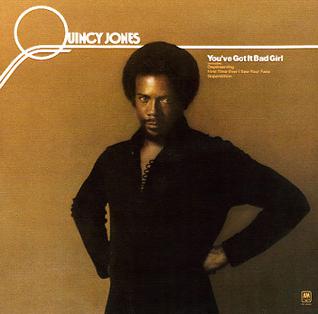
You've Got It Bad Girl is a 1973 album by the American jazz musician/producer Quincy Jones.

Water Sign is the third album by keyboardist Jeff Lorber as leader of his band "The Jeff Lorber Fusion". Released in 1979, this was Lorber's first album on Arista Records.

A House Full of Love: Music from The Bill Cosby Show is a studio album by American jazz saxophonist Grover Washington Jr. recorded together with an ensemble of various musicians. The album was released in 1986 through Columbia Records label. Most of the compositions in the record were written by Bill Cosby, Stu Gardner and Arthur Lisi.
American comedian Bill Cosby has released 23 albums of stand-up comedy, 16 studio albums of music, and six singles. He is known mainly for his stand-up comedy, with his first album of comedy Bill Cosby Is a Very Funny Fellow...Right! being released in 1963. He has also recorded several albums of music. Additionally, Cosby has charted six singles on various Billboard charts, including "Little Ole Man ", a number four hit on the Billboard Hot 100 in 1967.
















